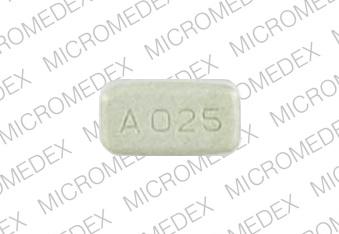Permax Disease Interactions
There are 4 disease interactions with Permax (pergolide).
Dopamine agonists (applies to Permax) neuroleptic malignant syndrome
Major Potential Hazard, Low plausibility.
The use of dopamine agonists is contraindicated in patients with neuroleptic malignant syndrome (NMS). NMS is characterized by hyperthermia, muscle rigidity, altered mental status, irregular pulse or blood pressure, tachycardia, and diaphoresis. The syndrome may rarely be precipitated by abrupt discontinuation of the dopamine agonist.
Dopamine agonists (applies to Permax) psychoses/depression
Major Potential Hazard, Moderate plausibility. Applicable conditions: Psychosis
The use of dopamine agonists has been associated with psychiatric effects such as hallucinations, psychosis, confusion, anxiety, mania, hypomania, depression, rapid mood cycling, nightmares, and hypersexuality. Therapy with dopamine agonists should be administered cautiously in psychotic patients and all patients should be carefully observed for development of depression and suicidal tendencies.
Pergolide (applies to Permax) cardiac valve disease/arrhythmias
Major Potential Hazard, Moderate plausibility. Applicable conditions: Valvular Heart Disease
The use of pergolide has been shown to increase the risk of cardiac valvular disease involving one or more valves. Some patients have required valve replacement, and deaths have been reported. Specific risk factors predisposing patients to developing cardiac valvular disease with pergolide have not been identified. Cardiac valvulopathy has been reported with all doses of pergolide; however, available data suggest that the risk may be greater with higher doses. Pergolide is not recommended for use in patients with a history of cardiac valvulopathy. Additionally, caution should be exercised when administering pergolide to patients prone to cardiac dysrhythmias. Before initiating treatment with pergolide, all patients should undergo a cardiovascular evaluation, including an echocardiogram, to determine whether valvular disease is present and to provide a baseline for subsequent monitoring.
Dopamine agonists (applies to Permax) hypotension
Moderate Potential Hazard, Moderate plausibility.
Dopamine agonists may impair the systemic regulation of blood pressure, with resultant orthostatic hypotension at any time, but especially during dose escalation. Additionally, patients with Parkinson's disease may have an impaired capacity to respond to an orthostatic challenge. For these reasons, patients with Parkinson's disease (or restless legs syndrome) who are being treated with dopaminergic agonists typically require careful monitoring for signs/symptoms of orthostatic hypotension, especially during dose escalation, and should be advised of this risk.
Switch to professional interaction data
Permax drug interactions
There are 266 drug interactions with Permax (pergolide).
Permax alcohol/food interactions
There is 1 alcohol/food interaction with Permax (pergolide).
More about Permax (pergolide)
- Check interactions
- Compare alternatives
- Drug images
- Side effects
- Dosage information
- During pregnancy
- Drug class: dopaminergic antiparkinsonism agents
Related treatment guides
Drug Interaction Classification
| Highly clinically significant. Avoid combinations; the risk of the interaction outweighs the benefit. | |
| Moderately clinically significant. Usually avoid combinations; use it only under special circumstances. | |
| Minimally clinically significant. Minimize risk; assess risk and consider an alternative drug, take steps to circumvent the interaction risk and/or institute a monitoring plan. | |
| No interaction information available. |
See also:
Further information
Always consult your healthcare provider to ensure the information displayed on this page applies to your personal circumstances.


